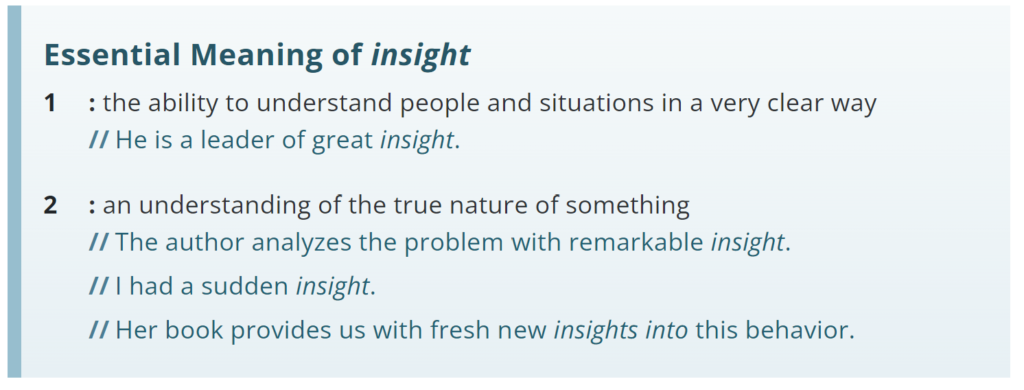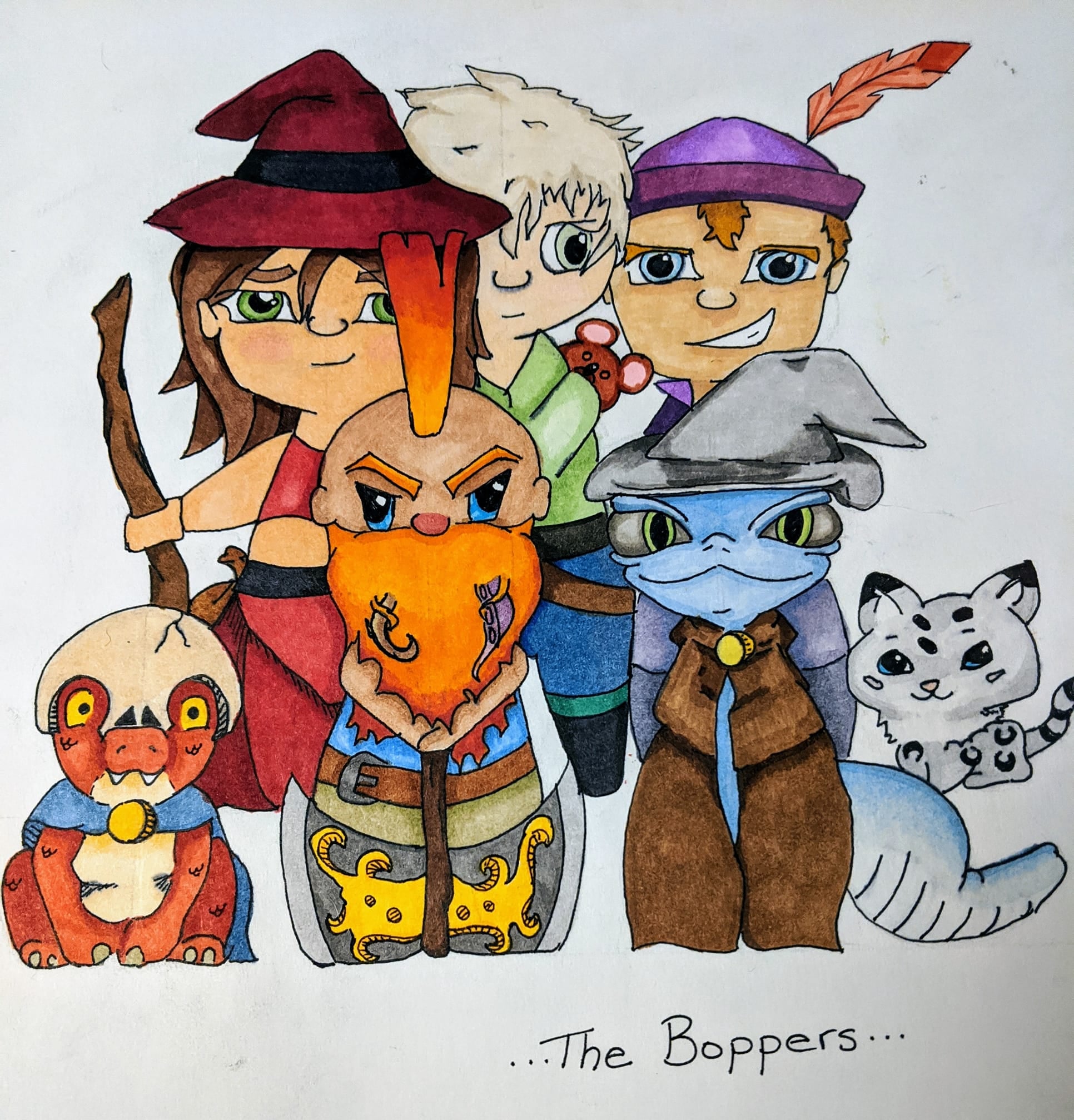Recently my browsing led me to a Dungeons and Dragons article by CRB.com titled “How to Use Dungeons & Dragons’ Most Controversial Skill“. The “controversial skill” in question is insight. Click-bait title aside, author Dashiell King, raises some really good points about how insight is typically used and skirts along the edge of some additional ways it can be applied. This inspired me to start a new type of column, Skill Spotlights! I will periodically take a skill, discuss it’s typical uses (for better or worse) and suggest some creative applications to add some extra flavour to your games. So, let’s take a look at insight in Dungeons and Dragons.
So, What is Insight?
As stated in the CRB article, insight is primarily used in D&D to detect whether or not someone is telling the truth. What this typically means is that a player is uncertain of the veracity what an NPC is saying to them, so the Dungeon Master would ask them to roll an insight check. Based on their roll – and the deception roll of the NPC, if necessary – the DM would then proceed to tell the player if they believe what the NPC is saying. While that’s a fine use (though often a bit heavy handed), insight itself is much more than that.
In the real world, insight is defined very broadly:

As shown, insight has a wide range of applications in real life. Understanding people and situations is something that we do on a daily basis. We are constantly using our insight to assess situations, as well as understand people and their actions. So while recognizing truth and lies is a small part of what people use insight for, it’s far from the whole.
Even in Dungeons and Dragons, that is only a small part of the design intention of the insight skill. In the fifth edition Player’s Handbook insight is explained as follows:

So we can see here that the intention of the insight skill is not so narrow, or bluntly defined as it’s typical use. While “searching out a lie” is part of the description, it’s only one small piece of D&D’s insight skill. Just like insight in real life. So I’d like to talk about some ways that we as Dungeon Masters – and players – can do better.
Improving Insight in Dungeons and Dragons
Detecting a Lie
Let’s first talk about what we can do with the most common use, searching for truth and lies. When I was a new DM, I was definitely guilty of simply telling players whether or not they believed the speaker. This is the simplest, but least immersive, way to signal this information to the players. Rather than stating this information bluntly, a DM could describe the mannerisms of the character. By describing their bearing, the cadence of their speech, any waver in their voice, fidgeting, etc. the DM gives the players the agency to decide for themselves if the NPC is lying. Beyond that it can give them an opportunity to observe other things that they may not read from the dialogue such as nervousness, fear, or smugness.
“…a broader interpretation of Insight gives the players a chance to decide for themselves what these behaviors might mean…”
Dashiell King, CBR.com
Assessing Situations
Now let’s look at a broader scope of situations. Insight is what we use when we are examining a situation and trying to determine what is going to happen. As a teacher, I frequently count on my insight to determine if a minor issue is likely to escalate into something bigger, and therefore if intervention is necessary. We can use our own insight to determine what to expect based on the behaviour of individuals or groups.
Imagine your party is relaxing in a busy tavern. While enjoying some local mead and cuisine one member of the party notices some gambling happening at a nearby table. The player asks if they can get a read on the table, so you call for an insight roll. After a decent insight check you inform them that while most of the table seems to be simply enjoying they game, they see growing tension between two of the gamblers. A hard-looking human sailor looks like he is trying to hide frustration while periodically side-eyeing a rather smug-looking dwarf in a fine hat. The dwarf maintains his smile but is fidgeting nervously with the cuff of his jacket.
Some of this is simple observation – often you’ll find that the lines between perception, investigation, and insight can be a bit blurry. The important thing in this instance is that the information given is not just what the character perceives, but a deeper read of the situation. The human is barely hiding frustration and the dwarf is clearly nervous, why? Perhaps the dwarf is cheating, perhaps he just won most of the sailor’s money, or perhaps he slept with the human’s favourite doxie. The player doesn’t know, but they have a bit of a read on the situation, and can choose how to react. Perhaps with a better roll they could have even more information.
Combat
Another idea mentioned in the CBR article is the use of insight in combat. Now typically, skill checks in combat require the full use of your action. The idea here being that in the heat of the moment, while moving around, protecting yourself and keeping track of enemies/allies, performing a skill will require what is left of your faculties. All that said, I don’t think there is any reason you couldn’t follow the advice of the CBR article and do insight checks as a bonus action. This would encourage your players to make creative use of these skill checks during combat without having to trade out their full action.
Insight checks in combat could have a wide variety of applications. Here are some things that characters could learn by applying their insight in combat:
- Perhaps the enemy has an old injury hidden in the way that they move.
- Enemy morale is dropping and they may break and flee soon.
- See that the enemy seems overconfident and might be expecting reinforcements.
- Read into any specific tactics a group of enemies are using or secrets they may be hiding.
- Discern the abilities of an enemy.
- Prepare for environmental or lair effects.
As insight’s primary function is to help us understand situations, it should fit into D&D combat naturally.
Go Try It
The great thing about D&D 5e is how modular and flexible it is. It is very open to shifting and experimenting with different rules and ideas. Take a few sessions with your group and play with the way you are using insight in Dungeons and Dragons – or talk to your DM about it. A bit of tweaking and you may find that it adds some extra depth to interactions and gives a bit more agency to your players!
Follow this link for more DM tips and tricks!
What do you think about insight in D&D? What other skills do you think could be broadened in their use?



